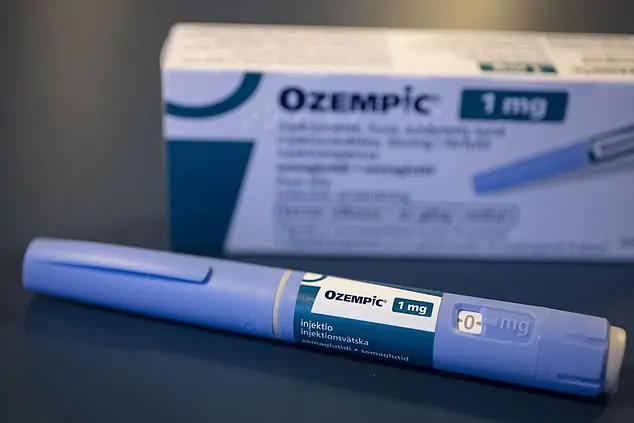
Experts issue urgent warning about terrifying hidden symptom from taking Mounjaro and Ozempic
Recent reports from Australia have raised significant concerns over the safety of GLP-1 agonist weight loss drugs, such as Wegovy, Ozempic, and Mounjaro, after numerous patients began experiencing symptoms suggestive of liver damage. These concerns have prompted warnings from healthcare professionals who advise patients using these medications to monitor their health closely and schedule regular check-ups with their general practitioners (GPs).
In this article, we delve into the emerging issue surrounding these weight loss medications, the potential risks of drug-induced liver injury, and the crucial steps that patients should take to safeguard their health while using GLP-1 injections.
The Rising Concerns: Reports of Liver Injury
Patients using GLP-1 agonists such as Wegovy and Ozempic, two popular weight loss drugs, have started reporting flu-like symptoms, fatigue, abdominal cramps, and vomiting-symptoms that are consistent with liver injury. In some of the more severe cases, patients were rushed to the hospital after experiencing inflammation of the liver, a condition known as hepatitis.
Aussies on weight loss injections have reported liver-related injuries after taking up the medication (stock image)
Semaglutide, sold as Ozempic and Wegovy, is used to address weight loss and type-2 diabetes
The Therapeutic Goods Administration (TGA), which is responsible for regulating medicines in Australia, has received three separate reports of hepatitis or liver injury linked to the use of semaglutide-based drugs, specifically Ozempic and Wegovy. Two of the patients were using Ozempic, while the third was on Wegovy. These reports have raised concerns among medical experts, who are now urging patients on weight loss injections to undergo regular monitoring to detect any signs of liver damage early.
In addition to the reports involving Ozempic and Wegovy, there have also been growing concerns from patients using Mounjaro, another GLP-1 agonist. One patient shared her experience online, stating, “Any of you on Mounjaro have had to stop taking it due to it affecting your liver? I’m currently in hospital with medication-induced hepatitis and they’re positive it’s from the Mounjaro,” revealing the potential risk of liver injury associated with this drug as well.
Another individual commented, “Wegovy badly affected my liver and I had to stop, fortunately, I didn't end up in hospital.” This patient shared that after switching from Wegovy to Mounjaro, her liver function tests showed slightly abnormal results, prompting her to stop the treatment altogether. These personal accounts underscore the importance of vigilance and awareness when using these medications.
What is Hepatotoxicity and Why is it a Concern?
Hepatotoxicity refers to liver damage caused by drugs or other substances, and in the case of GLP-1 agonists, this condition appears to be a potential risk for some patients. The liver is responsible for metabolizing medications, and while most people metabolize drugs without any issues, some individuals may have difficulty processing certain substances. This can lead to an accumulation of toxic compounds in the liver, causing inflammation, liver cell damage, and, in severe cases, liver failure.
Experts believe that GLP-1 agonists like Ozempic and Wegovy can cause hepatotoxicity in a small number of patients, particularly those who may have pre-existing liver conditions or metabolic disorders that affect the way their bodies process medication. While such cases are rare, they highlight the importance of monitoring for potential side effects, especially as the use of these drugs increases globally.
Dr. Gary Deed, a representative of the Royal Australian College of GPs, emphasized the need for careful monitoring when using these medications. He stated, “Many doses have been administered in clinical trials and there doesn’t appear to be anything common, but any drug has issues with metabolism in the kidney or liver, some more than others. For instance, paracetamol is one of those medications that can affect the liver.” This highlights that while GLP-1 agonists have been shown to be effective for weight loss, they may come with hidden risks that need to be addressed proactively.

Many celebrities have openly talked about trying drug injections like Ozempic to assist with weight loss, including Aussie actress Rebel Wilson (above)
The Role of Regular Check-Ups for GLP-1 Users
Given the potential risks of hepatotoxicity associated with these weight loss injections, experts are urging patients to be proactive about their health. Regular visits to a GP are crucial for anyone using GLP-1 agonists, as they allow for early detection of any adverse effects, including liver damage. In addition to routine blood tests that can monitor liver function, patients should be aware of any symptoms that may indicate potential issues.
Dr. Deed further advised, “Just be aware of signs and symptoms on the liver, one of the issues of using GLP-1 agonists is nausea, and hepatotoxicity can be hidden in that. These symptoms are a good wake-up call.” Symptoms such as nausea, abdominal pain, fatigue, and vomiting should not be ignored, and patients experiencing these signs should seek medical advice promptly.
The TGA has been actively monitoring adverse events associated with semaglutide medications and encourages patients to report any potential side effects. As part of their ongoing surveillance efforts, the TGA received its first report of hepatitis linked to semaglutide in September 2022, and they continue to collect data on the potential risks associated with these drugs.
Some patients on weight loss injections Wegovy (pictured) and Ozempic reported flu-like symptoms, fatigue, abdominal cramps and vomiting
The Growing Use of GLP-1 Agonists and the Need for Caution
GLP-1 agonists like Ozempic, Wegovy, and Mounjaro have become increasingly popular in recent years due to their effectiveness in helping individuals lose weight and manage type 2 diabetes. These medications work by mimicking a hormone called GLP-1, which regulates insulin, appetite, and digestion. By enhancing the body’s natural processes, GLP-1 agonists help patients reduce their food intake and lose weight.
However, as the popularity of these medications grows, so does the need for awareness regarding potential side effects. The TGA’s reports of liver injury associated with semaglutide drugs are a timely reminder that even widely used medications can have unexpected consequences for certain individuals. In particular, the increase in cases of drug-induced hepatitis among patients using these weight loss injections underscores the importance of balancing the benefits of weight loss with the risks of liver damage.
What About Other Medications?
While the liver concerns related to GLP-1 agonists are significant, it’s important to recognize that many other medications, both prescription and over-the-counter, can also have adverse effects on liver function. Paracetamol, for instance, is widely used for pain relief but can lead to liver damage if consumed in excessive amounts. This serves as a reminder that even commonly used medications come with risks that require careful monitoring.
The case reports of liver injury linked to GLP-1 agonists are rare, but they cannot be ignored. As with any medication, patients should be aware of potential side effects and consult their healthcare providers if they experience symptoms that may suggest liver problems or other health concerns.
What Should Patients Do?
If you are using GLP-1 agonists like Ozempic, Wegovy, or Mounjaro, it is essential to take the following steps to protect your health:
- Regular Check-Ups: Ensure that you visit your GP regularly for check-ups and blood tests to monitor your liver function and overall health. Early detection of any potential issues can help prevent more serious complications.
- Monitor Symptoms: Be vigilant about any new symptoms, such as nausea, abdominal pain, vomiting, or fatigue, which could be indicative of liver issues. If you experience any of these symptoms, seek medical advice immediately.
- Report Adverse Effects: If you suspect that the medication is affecting your liver or causing other side effects, report it to your healthcare provider and the relevant health authorities, such as the TGA.
- Consider Alternatives: If you experience significant side effects from your current medication, discuss alternative weight loss treatments with your doctor. There may be other options available that are better suited to your needs and health profile.
Conclusion: A Cautionary Tale for Weight Loss Medication Users
The emergence of reports linking GLP-1 agonists to liver injury serves as a reminder that all medications, even those designed to aid weight loss, come with risks. While the overall incidence of hepatotoxicity is rare, patients using Ozempic, Wegovy, and Mounjaro must remain vigilant and proactive in monitoring their health. Regular GP check-ups, symptom monitoring, and timely reporting of side effects are essential steps in ensuring that these medications are used safely and effectively.
As more data is collected and research continues, it is crucial for both patients and healthcare providers to stay informed about the potential risks and benefits of GLP-1 agonists. By maintaining an open dialogue with healthcare professionals and being aware of any warning signs, patients can safeguard their liver health while benefiting from the weight loss and other advantages that these medications offer.
News in the same category


Restore Your Grout Lines with This Easy and Budget-Friendly DIY Cleaning Hack

12-Year-Old's Lifelong Dialysis: 5 Favorite Foods Secretly Damaging Your Kidneys

Eating While Screen-Obsessed? Here Are 4 Hidden Health Risks You’re Ignoring

How to Choose the Sweetest Pineapple: Long Leaves or Short?

8 Simple Yet Highly Effective Tips to Stop Snoring

Is It Necessary to Unplug Your Washing Machine After Use

The Hidden Costs of Frost Accumulation in Your Refrigerator: Understanding the Energy Drai

🍎 Why Do Imported Apples Stay Fresh for a Month Without Spoiling?

Top 3 Seat Positions with the Highest Survival Rates in Aviation Emergencie

Simple Finger Test Could Reveal Early Signs of Lung C@ncer and Other Health Issues
A simple finger test, known as the Schamroth window test, can help detect signs of lung c@ncer and other health conditions, including heart problems. Learn how to perform this easy test at home.

Start Your Day Right: 5 Foods That Safeguard Your Kidneys and Reduce Uric Acid

The Ultimate Health Blend: Honey, Cinnamon, Turmeric, Apple Cider Vinegar, and Chia Seeds for Better Health
Discover the powerful benefits of honey, cinnamon, turmeric, apple cider vinegar, and chia seeds. Learn how this natural blend can improve digestion, stabilize blood sugar, and enhance bone and heart health.

Revolutionary C@ncer Treatment: Doctors Target Tumors Without Chemotherapy

Why Your Underwear Gets Bleach-Like Stains: Gynecologist Explains the Causes and What It Means for Your Health
Discover why your underwear may have bleach-like stains and why it's completely normal. A gynecologist explains the role of vag!nal discharge and how it can affect your underwear fabric. Learn when to be concerned and how to maintain vag!nal health.

12 Effective Ways to Remove a Wart on Your Finger
Discover effective methods for removing warts on your fingers, from at-home remedies like salicylic acid and duct tape to professional treatments. Learn how to identify, treat, and prevent warts with expert advice.

5 Household Items That Harbor Formaldehyde: Hidden Cancer Risks Lurking in Your Home

Air Conditioner Efficiency: Continuous Use vs. Frequent Switching

What Homebuyers Need to Know: 5 Locations to Avoid When Buying Property

Don't plant these 5 trees indoors: The more they thrive the more they're believe to drain human energy, attracting constant bad luck
News Post

Beyond the BuII!e$: How One Girl Stitched Her Way Back to Confidence with Crochet
After facing buIIy!ng for her unique style, a 6th-grade girl found her voice and confidence again through crochet. Discover this inspiring story of artistic triumph, self-expression, and how handmade passion can build an empire, one stitch at a time.

Long vs. Round Eggplants: Which One Should You Choose?

The Heartbre@king Selfie: A Dream Shattered in the Blink of an Eye
On June 12, a family’s dream of a new life in London ended tragically in a plane crash. Discover the emotional story of Pratik Joshi’s family, their dreams, and the reminder that life is fragile.

Restore Your Grout Lines with This Easy and Budget-Friendly DIY Cleaning Hack

12-Year-Old's Lifelong Dialysis: 5 Favorite Foods Secretly Damaging Your Kidneys

5 DIY Skin Toners for Radiant, Smooth Skin: Natural Remedies for Every Skin Type
By incorporating these simple DIY toners into your daily skincare regimen, you can achieve smoother, clearer, and more radiant skin without the need for expensive products.

Eating While Screen-Obsessed? Here Are 4 Hidden Health Risks You’re Ignoring

Should You Stay or Let Go? How I Realized I Wasn't His First Choice
A heartfelt and emotional journey of love, heartbreak, and self-discovery. When your partner is still hung up on their ex, is it worth fighting for the relationship? Discover the painful truth behind choosing yourself over unrequited love.

Vaseline and Coffee: The Ultimate DIY Skincare Duo to Achieve Wrinkle-Free Skin Naturally
By incorporating these ingredients into your skincare routine through DIY masks and scrubs, you can rejuvenate your skin, reduce the appearance of wrinkles, and achieve a youthful, radiant complexion.

The Flowers that Kept Us Apart: A Love Story Decades in the Making
A woman embarks on a journey to find out the truth behind mysterious flowers sent to her every year, only to uncover a love story that had been hidden for 20 years.

I Found My Husband's Secret Conversations With Another Woman – And What He Told Me Br0ke My Heart
A wife discovers her husband's secret texts with a woman he met at a strip club. What seemed like innocent conversations quickly turns into an affair, and now she has to decide if she can ever trust him again.

Weight Loss Drink: Consume These 2 Herbal Drinks To Detox and Lose Weight Naturally
These two natural detox drinks-Spiced Lemon-Honey Drink and Cumin Water-are simple yet powerful remedies for boosting metabolism, improving digestion, and reducing belly fat.

How to Choose the Sweetest Pineapple: Long Leaves or Short?

Abandoned Child, Heartbre@king Note, and the Sh0cking Truth Behind a Family's Dark Secret
When a woman discovers an abandoned child with a mysterious note, she’s thrust into a tangled web of secrets, betrayal, and an inheritance that changes everything. Dive into this captivating story of hidden truths and the love that saves a life.

8 Simple Yet Highly Effective Tips to Stop Snoring

Is It Necessary to Unplug Your Washing Machine After Use

4 Natural Potato Remedies to Fade Dark Spots and Achieve Even Skin Tone
Potatoes are a natural and effective solution for treating dark spots, pigmentation, and uneven skin tone.

The Hidden Costs of Frost Accumulation in Your Refrigerator: Understanding the Energy Drai

Homemade Vitamin C Serum: DIY Recipe for Clear, Glowing, and Ageless Skin
A homemade Vitamin C serum is a natural, affordable, and effective way to achieve radiant, youthful skin.
